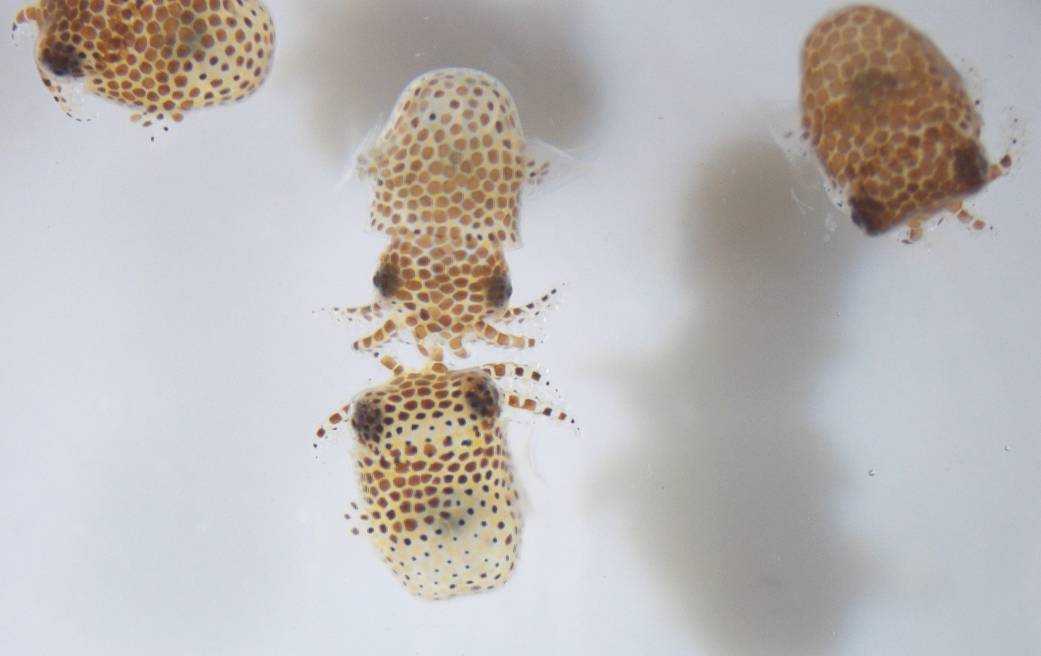乌贼和其他研究人员正向空间站进发。是的,乌贼!
In just over a week on June 3, 2021, these tiny squids will head to space along with many other scientific experiments aboard SpaceX’s 22nd cargo resupply mission to the International Space Station. The squids are a part of the UMAMI study which examines the effects of spaceflight on interactions between beneficial microbes and their animal hosts. UMAMI stands for Understanding of Microgravity on Animal-Microbe Interactions. Microbes play a significant role in the normal development of animal tissues and in maintaining human health.
This investigation helps determine whether spaceflight alters the mutually beneficial relationship, which could support development of protective measures and mitigation to preserve astronaut health on long-duration space missions. The work also could lead to a better understanding of the complex interactions between animals and beneficial microbes, including new and novel pathways that microbes use to communicate with animal tissues. Such knowledge could help identify ways to protect and enhance these relationships for better human health and well-being on Earth as well.
Learn more about the experiments launching to space.
Image Credit: Courtesy of Jamie S. Foster
再过一周,也就是2021年6月3日,这些小乌贼将与其他许多科学实验一起,搭乘SpaceX的第22次向国际空间站运送货物补给任务前往太空。乌贼是UMAMI研究的一部分,该研究调查了太空飞行对有益微生物和它们的动物宿主之间相互作用的影响。UMAMI是指了解微重力对动物-微生物相互作用的影响。微生物在动物组织的正常发育和维持人类健康方面发挥着重要作用。
这项调查有助于确定航天飞行是否改变了互利关系,这可能有助于制定保护措施和缓解措施,以在长期空间任务中维护宇航员的健康。这项工作还可以使人们更好地理解动物和有益微生物之间复杂的相互作用,包括微生物用来与动物组织交流的新途径。这些知识有助于确定保护和加强这些关系的方法,从而更好地促进人类在地球上的健康和福祉。
了解更多关于发射到太空的实验。
图片来源:Jamie S. Foster提供

